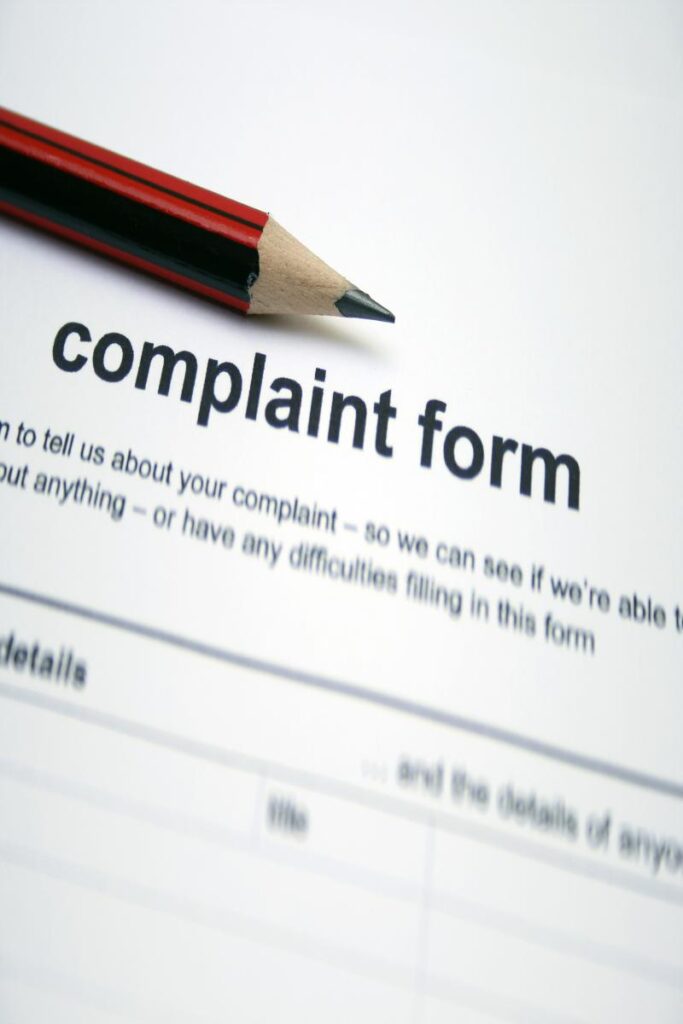Navigating the rules and laws related to your profession can be complex, especially when you have received notice of a complaint against your license. Failing to respond to a licensing complaint can be highly detrimental to the outcome of your disciplinary proceedings. As a result, formulating a timely, informed, and effective response to the complaint is critical.
You will likely have only a short time to respond to your complaint. An experienced professional license defense attorney at Bertolino LLP can represent your interests in any disciplinary proceedings before your licensing board or agency. Contact legal counsel immediately when you have received a disciplinary complaint from your licensing complaint.
Disciplinary Proceedings for Failure to Respond / Cooperate
Most licensing boards or agencies require that professionals respond to notices of complaints within a certain timeframe. This timeframe is often as little as 30 days from the date of the notice or the date that the professional receives it. Failure to meet this deadline can have various implications.
One potential consequence of failing to respond to a disciplinary complaint is additional disciplinary charges. Under the rules and laws that govern many professions, failing to cooperate with a licensing board or respond to a complaint can be an independent basis for disciplinary action. As a result, you could face disciplinary action and sanctions based on your failure to respond to the original complaint in addition to any disciplinary action and sanctions based on the allegations that led to the original complaint. These circumstances could cause you to face even greater sanctions against your license than you originally faced.
Click to contact our professional license defense lawyers today
For example, under 22 Tex. Admin. Code §179.4(a), if the Texas Medical Board (TMB) requests a licensee to produce medical records in the course of a disciplinary investigation, the licensee must do so within a reasonable time. This law defines a reasonable time as no more than 14 calendar days or a shorter time if the urgency of the situation requires it or the possibility exists that records may be lost, destroyed, or stolen.
Complete a Case Evaluation form now
Similarly, 22 Tex. Admin. Code §179.4(e) requires that licensees respond to written TMB requests for information related to disciplinary complaints within 10 days of the day of the request. Failure to comply with either of these laws can result in additional disciplinary charges and sanctions against licensees.
Furthermore, Tex. Occ. Code §1101.652(a-1)(2) states that the Texas Real Estate Commission (TREC) can take disciplinary action, including suspending or revoking a license, if the licensee “fails or refuses to produce on request, within a reasonable time, for inspection by the commission or a commission representative, a document, book, or record that is in the license holder’s possession and relates to a real estate transaction conducted by the license holder.” TREC also may suspend or revoke a real estate license if the licensee fails to provide information within a reasonable time that the agency requests relating to a formal or informal complaint alleging a violation of an applicable rule or law.
Finally, the State Bar of Texas handles complaints about licensed attorneys. Texas Disciplinary Rule of Professional Conduct 8.04(a)(8) states that “a lawyer shall not: fail to timely furnish to the Chief Disciplinary Counsels office or a district grievance committee a response or other information as required by the Texas Rules of Disciplinary Procedure unless he or she in good faith timely asserts a privilege or other legal ground for failure to do so.” Therefore, failure to respond to the State Bar is an independent ground for disciplinary action for attorneys.
Default Orders
Failing to respond to a disciplinary complaint also can result in your licensing board or agency entering a default order against you. Under the laws and rules that govern many professions, professional licensing agencies or boards have the authority to enter an order finding that you have violated the law(s) or rule(s) alleged in the complaint and imposing sanctions against you. The board or agency will issue this default order without further notice to you, input or evidence from you, or a disciplinary hearing being held.
For instance, the Texas Department of Licensing & Regulation licenses, regulates, and monitors various professions, including speech-language pathologists, veterinarians, podiatrists, electricians, and cosmetologists. If TDLR finds evidence to believe that a licensed professional has violated a rule or law that it enforces, it issues a Notice of Alleged Violation (NOAV) to them. A licensee has 20 days to respond to the NOAV by admitting to the alleged violations and accepting any sanctions proposed by TDLR or requesting a contested hearing. Failure to respond to by accepting TDLR’s proposal or asking for a hearing will result in TDLR issuing a default order.
The same outcome is true for nurses facing a disciplinary complaint from the Texas Board of Nursing (BON). If BON cannot reach a nurse during the informal settlement process for a complaint, it will automatically file formal disciplinary charges against the nurse. Formal disciplinary charges require a response from a nurse within 20 days. If the nurse fails to respond promptly, BON may proceed with an order finding that misconduct has occurred and may even revoke a nurse’s license without further notice or hearing.
Allow Bertolino, LLP, to Help You with Your Professional License
You need an experienced professional license defense attorney to assist you when you receive a complaint that could adversely impact your license. Ignoring or disregarding a complaint against your license, even when it seems baseless or frivolous, can adversely affect your license. We recognize the high stakes involved in these proceedings and what they could mean for your career. As a result, we will work to defend you against the disciplinary proceedings you are facing. Contact Bertolino LLP today at (512) 980-3751 or visit us online.
Call or text (512) 476-5757 or complete a Case Evaluation form






